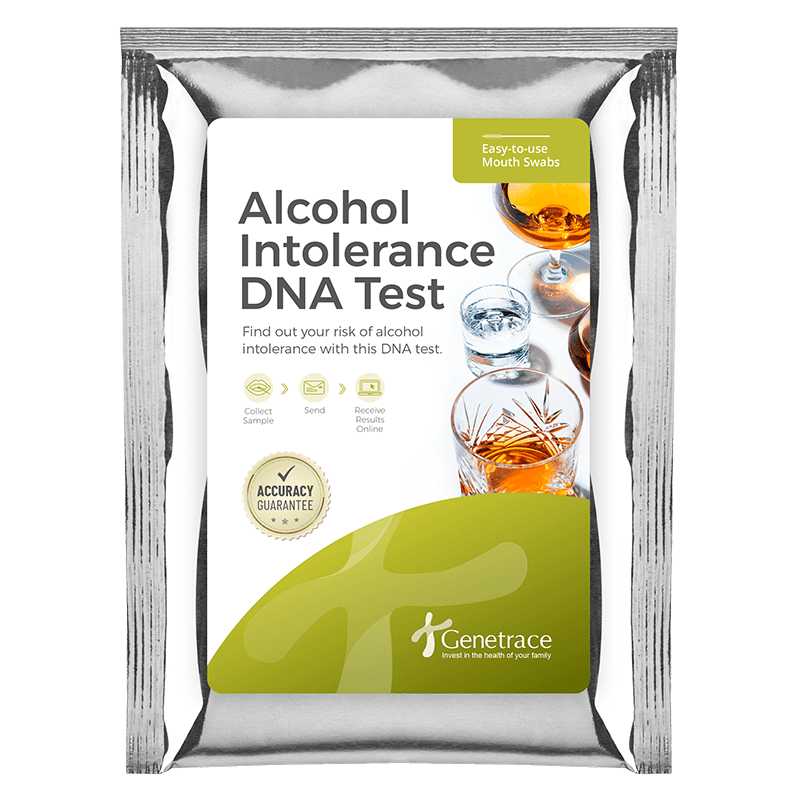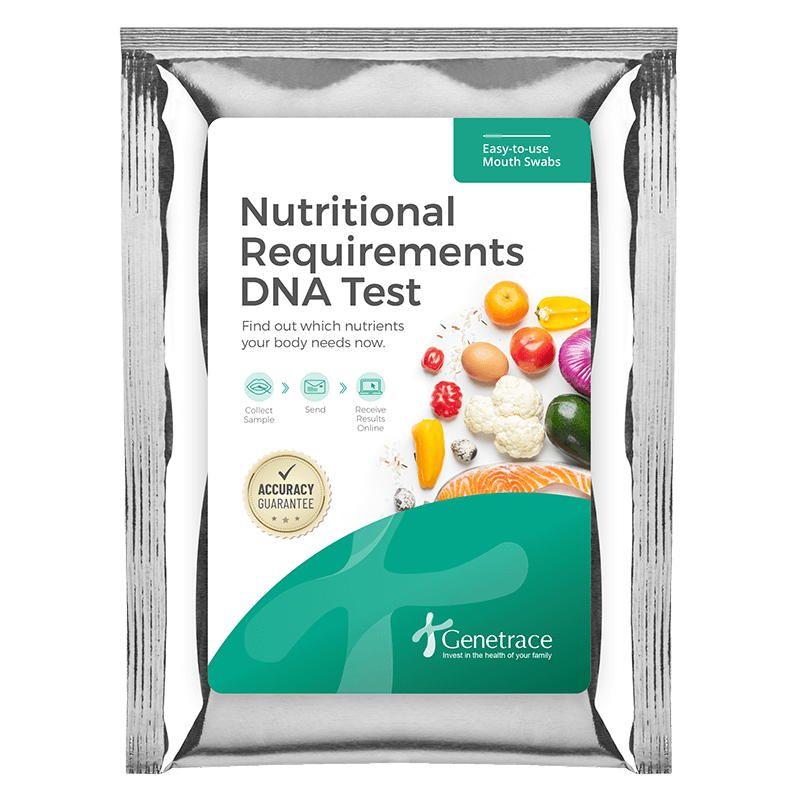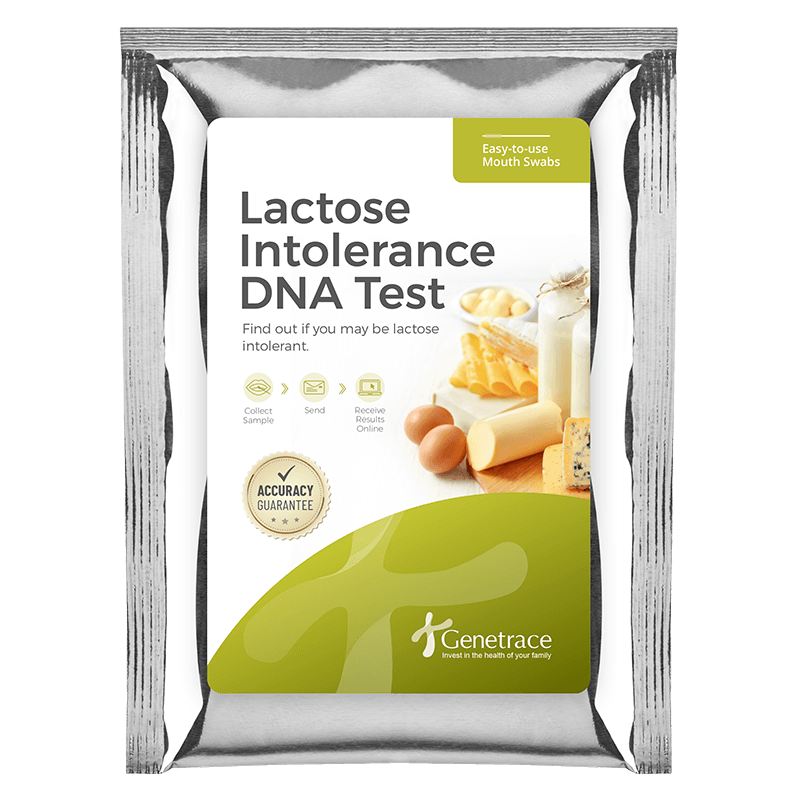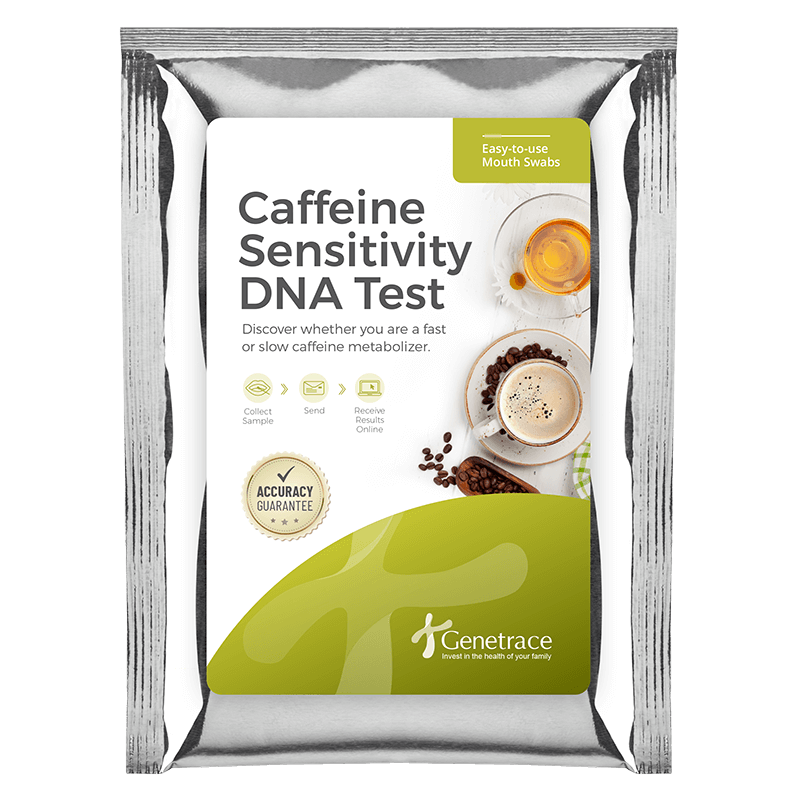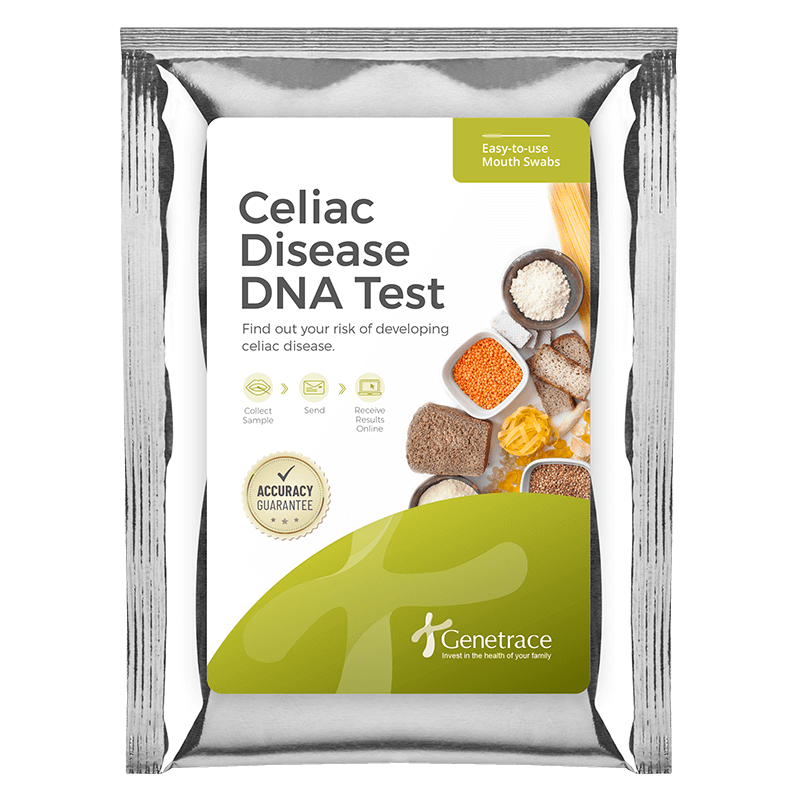Alcohol Intolerance DNA Test
$149.00
Does your face turn red when you drink? Do you experience severe hangovers from just one drink? If you answered yes, you may be alcohol intolerant. Find out your risk of alcohol intolerance with this DNA test.
- Free shipping both ways
- Easy-to-use cheek swabs
- AABB, ISO17025 & CLIA accredited lab
Kit includes all lab fees and free return shipping to the lab.
Receive secure, confidential results through your online dashboard.
All tests performed in our AABB, ISO 17025 & CLIA accredited laboratory.
Most of the alcohol that enters our bodies are broken down using a two-step process. First, ethanol is converted to acetaldehyde by the enzyme alcohol dehydrogenase (ADH). Acetaldehyde is a toxic chemical that can damage our bodies. However, it is usually short-lived, because a second enzyme aldehyde dehydrogenase (ALDH) immediately converts acetaldehyde to acetate. Acetate is further metabolized to generate carbon dioxide and water.
Individuals who are at risk of alcohol intolerant carry genetic variants influencing the activity of ADH and ALDH, which leads to an accumulation of acetaldehyde. Symptoms of alcohol intolerance will often appear immediately after consuming even a small quantity of alcohol.
This test detects genetic variants involved in the accumulation of acetaldehyde a toxic product generated during alcohol metabolism.
Variants in ADH1B and ADH1C genes
ADH genes give instructions to make the enzyme alcohol dehydrogenase, which converts ethanol to acetaldehyde. The variants are associated with increase enzyme activity leading to higher levels of acetaldehyde.
Variants in the ALDH2 gene
This gene gives instructions to make the enzyme aldehyde dehydrogenase, which converts acetaldehyde to acetate. Variant tested here decreases the activity of ALDH, slowing down the removal of acetaldehyde.
People who are alcohol intolerant will develop symptoms immediately following the consumption of even a small amount of alcohol. Immediate symptoms of alcohol intolerance include:
- Facial flushing
- Nausea
- Dizziness
- Headaches
- Increased heart rate
- Insomnia
- Severe hangovers
- Fatigue and weakness
- Digestive issues
- Asthma and wheezing
Summary
Most of the alcohol that enters our bodies are broken down using a two-step process. First, ethanol is converted to acetaldehyde by the enzyme alcohol dehydrogenase (ADH). Acetaldehyde is a toxic chemical that can damage our bodies. However, it is usually short-lived, because a second enzyme aldehyde dehydrogenase (ALDH) immediately converts acetaldehyde to acetate. Acetate is further metabolized to generate carbon dioxide and water.
Individuals who are at risk of alcohol intolerant carry genetic variants influencing the activity of ADH and ALDH, which leads to an accumulation of acetaldehyde. Symptoms of alcohol intolerance will often appear immediately after consuming even a small quantity of alcohol.
What's Measured?
This test detects genetic variants involved in the accumulation of acetaldehyde a toxic product generated during alcohol metabolism.
Variants in ADH1B and ADH1C genes
ADH genes give instructions to make the enzyme alcohol dehydrogenase, which converts ethanol to acetaldehyde. The variants are associated with increase enzyme activity leading to higher levels of acetaldehyde.
Variants in the ALDH2 gene
This gene gives instructions to make the enzyme aldehyde dehydrogenase, which converts acetaldehyde to acetate. Variant tested here decreases the activity of ALDH, slowing down the removal of acetaldehyde.
Technical Information
People who are alcohol intolerant will develop symptoms immediately following the consumption of even a small amount of alcohol. Immediate symptoms of alcohol intolerance include:
- Facial flushing
- Nausea
- Dizziness
- Headaches
- Increased heart rate
- Insomnia
- Severe hangovers
- Fatigue and weakness
- Digestive issues
- Asthma and wheezing
Explore your DNA Story
Embark on a journey of self-discovery with our at-home DNA tests, powered by cutting-edge science made accessible for all.
Simple Sample Collection
Secure Online Results
Accredited Laboratory
Discreet & Confidential
How it works
Purchase your kit
Collect DNA Sample
Mail samples to the lab
Receive your results
FAQ's
Here are the answers to the most frequently asked questions about this test.

